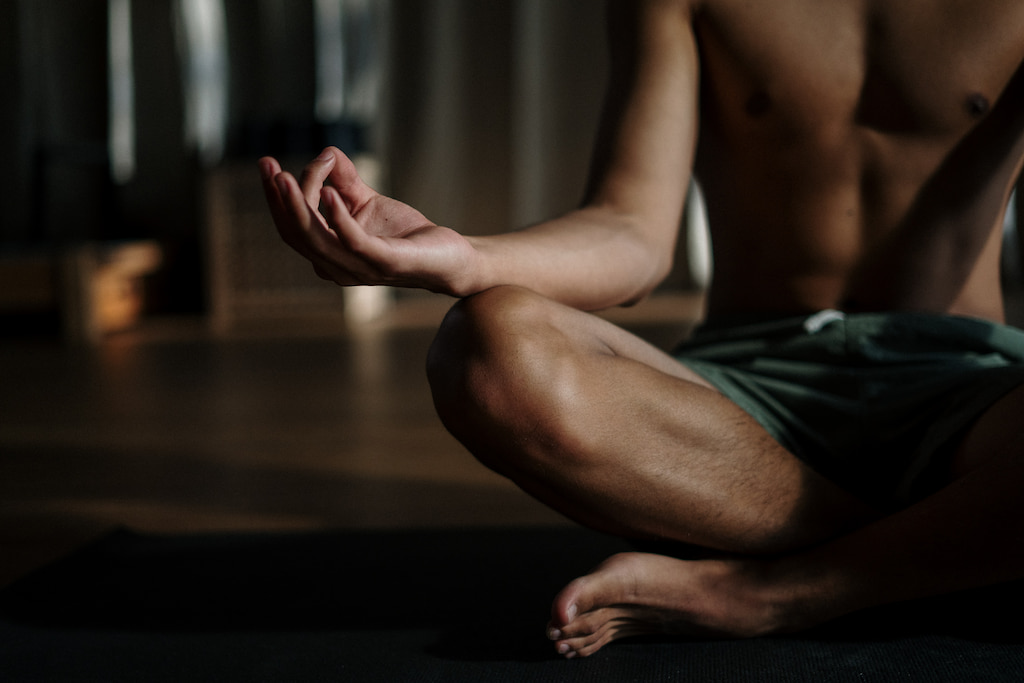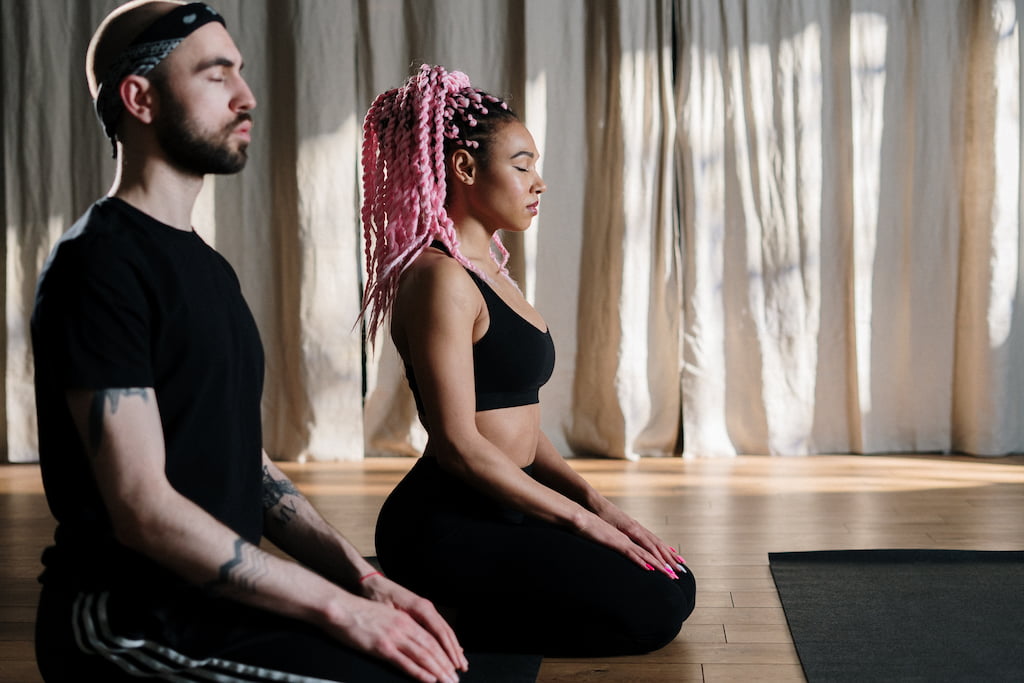The 5 Most Common Obstacles to Meditation

Contents
I can’t meditate.
It’s not for me.
It’s not working.
I don’t have time for it.
I just can’t seem to focus.
Do any of these sound familiar?
These days, meditation and its benefits are becoming more prominent in the Western world thanks to all the scientific research on how meditation benefits the brain. Many of these studies have come to similar conclusions: meditation changes the brain in areas associated with memory, focus, and learning. It has also been known to reduce symptoms of anxiety and depression and helps us to regulate our emotions, especially the “negative” ones, thus giving us a chance to choose how we respond to them and become less affected by them. All of these effects lead to improved states of well-being.
Despite hearing about the benefits of meditation over and over, many still shy away from the practice for various reasons. I personally know many friends who recount being physically and emotionally tired of living their lives. They describe feeling like they’re on a roller coaster: one day they’re reaching for the sky, and the next one they’re plummeting down fast. Finding peace is a struggle, but when I suggest meditation, one of the typical responses mentioned at the beginning comes up.
As a frequent and long-time meditator I know first-hand that trying to establish a consistent meditation practice is not a walk in the park. We all face many different obstacles along the way that can thwart our efforts or derail us from even starting. If you are new to the practice or if you’re considering giving meditation a try, watch out for the following 5 common obstacles.

1. Finding time to meditate
“If you don’t have time to meditate for an hour every day, you should meditate for two.”
– Zen proverb.
While meditating for two hours may not be realistic for you, 10 minutes might be…
Telling yourself you don’t have time to meditate is one of the most clever justifications the mind uses to stop you from even starting. The fact of the matter is that many of us lead busy lives in this world, especially if we live in a city, have jobs and a family. We all probably have bills to pay, work to do, school meetings to attend, grocery shopping to do, dishes to clean, and families to take care of.

In the midst of a rather hectic schedule, it may seem that using our downtime to meditate is irresponsible and unrealistic, or at least that’s what our minds tell us. Nevertheless, 10 minutes of silence can give us space to recharge our battery, rest our emotions and minds, and stop the drone of our worries, doubts, fears, the daily meaningless mental chatter, and even the voice of others. 10 minutes to enjoy the quiet calm of silence is not being irresponsible, and our lives will certainly not fall apart as a result.
If you feel that you can’t find 10 minutes for yourself, then create them. You know your own patterns and so you can create this break where it occurs naturally in your life. If you’re a morning person, you could wake up a little earlier than usual and choose a cozy corner of your room or take a seat in bed and set a 10-minute alarm. If you are not a morning person, you can take the silent time at your office during your lunch break or in the evening when you get home. If you have a family to take care of, you may take the time when your kids are off to school in the morning, or you may even encourage your whole family to meditate with you! If you feel you’re extremely busy then you may have to change certain habits to make space for your 10 minutes of meditation, such as foregoing the evening news or a TV show you’re used to watching.
The bottom line is: pick a regular time every day, preferably at the same place for the same amount of time, and commit to silently sitting still or practicing with the aid of a meditation app. At this stage, it doesn’t matter if you were not able to focus on anything and your mind ran loose in circles instead. At first, the most important step is to create the time and turn it into a habit. With time, the rest will follow suit.

2. Thinking meditation is a waste of time
Another trick your mind might play is convincing you that you’re wasting your time. While it may be true that you have a lot of things to do, it is equally true that taking time to clear your mind is not a waste of time. In fact, it is quite effective in improving your memory, as well as your problem-solving and planning skills.
What some consider to be a waste of time while meditating is actually an inability to stay put for even 10 minutes. This is by far one of the most difficult parts when you get into meditation — it happens to all of us, and not just at the beginning. I’ve had countless meditation sessions where I sat down to “meditate.” 20 minutes would pass and all would do was entertain my monkey mind: “You need to do this, you haven’t done that, what will I eat for lunch? God, I haven’t paid the electricity bill, when will this meditation session be over?” This is all normal, especially if you are not used to being in silence.
In the beginning, your internal dialogue may become even more turbulent, and this is where many people give up and say that they are wasting their time with meditation. If you’re at this stage, don’t give up now: this is just resistance from the mind, like a child making a fuss over something they don’t want to do. The mind wants to run away from quiet time because after all, talking and thinking endlessly is the mind’s domain and what it does best. As you stay with the experience of meditating, your internal dialogue will begin to subside and eventually the inner stillness will become profound, and not just for your seated meditation, but for everything that you do in life. The best approach here is to be patient and kind with yourself, persevere no matter what and start small. Five or 10 minutes of uninterrupted mental peace will prove more beneficial than fighting your way through 20 minutes of “trying” to meditate.
Just like you wouldn’t go to the gym and start doing intense workouts without warming up first, as a new meditator, you may not want to start meditating for an hour straight only to convince yourself that meditation doesn’t work for you or that you’re just wasting your time and have better things to do! 5-10 minutes can be your warm-up, and eventually, when feel the need, you can increase your meditation time. Start small, going step by step, and take the process from there.
And remember: making time for yourself to look within and give the nervous mind a break is not a waste of your precious time. It’s a service for yourself, for your mental health, for your soul and even the well-being of those around you.

3. Not knowing where to start…
Fair enough.
With so many meditation techniques available, it can be confusing to know how to start meditating. After all, we can meditate cross-legged, lying down, walking and even while doing the dishes! You may have to try out different techniques to find out which ones suit your needs best according to the context. You may also find that different forms of meditation will speak to you at different stages of your life.
Although I am not the biggest fan of technology, I must admit that it has made meditation more accessible to almost everyone, in every corner of the globe. Whereas in the past, meditation seekers had to travel far and wide to learn to clear their minds, now we have the convenience of doing so anywhere and anytime with the help of our gadgets.
If you have a smartphone and an internet connection you can download meditation apps that will teach you techniques that many of our most cherished ancient traditions have tried to teach us. If you need guidance for your meditation practice, I highly recommend that you check out Meditopia. They have an incredible array of guided meditation series and music, organized in a way that beginners and more experienced meditators alike can easily follow.

4. Shunning the practice due to popular or religious beliefs
Many people surprisingly shy away from meditation because it has been boxed into the “new age” category. Others are afraid that it will come up against their religious beliefs. The practice of meditation is neither new nor is it a religion.
First, meditation has been around for a long time and has been discussed in many of the most ancient spiritual texts known to humankind such as The Vedas, which dates back as far as 1500 BCE. And secondly, meditation will not interfere with any of your religious beliefs and practices because it is not a practice of calling on to God or any deity, but a time we dedicate to our mind, to train it to be still, objective and peaceful. If anything, meditation will make your connection to whatever it is that you believe in stronger; it will make you feel more peaceful, more compassionate and more loving towards all that lives, which in essence is the core message of all religious traditions around the world.

5. Believing that it is an instant magic pill
It is important to understand that meditation is not a magic pill that will take you to a miraculous place where all of your problems and tribulations will be forgotten or solved overnight. After you’re done with your meditation practice, you still have to get up and navigate the world, you still have to deal with your “difficult” boss or colleagues, you still have to go to work, pay your bills, do the dishes and engage in every aspect of your personal, professional and social life.
So meditation will not make your responsibilities go away, rather it will help you go about them with more care, attentiveness, and reverence. Your moody boss is no longer an annoying person but a human being like yourself who is simply having a bad day or difficult problems in his or her life; doing the dishes is no longer that compulsory activity that no one wants to do after eating but instead becomes an opportunity to be in the moment and enjoy your own presence; the work you may dislike is no longer a total unbearable torture but a temporary source of money that allows you to have a roof over your head and food on your table. No, meditation is not a magical pill, but it does allow us to see and experience the magic of life through the good and the rough times.
If we want to lead happy and peaceful lives we must put in the necessary work to allow that to happen — and meditation is a great tool to help us do precisely that.
If you remember only one thing out of all we have discussed here, let it be the idea to be patient, compassionate, consistent and above all, to start now! As Rabindranath Tagore said, “You can’t cross the sea merely by staring at the water.” So go on and embark upon the greatest journey of your life, and don’t hesitate to reach out to people who have a little more experience, join a meditation group or try a meditation app such as Meditopia.
What are some of the obstacles you have faced when trying to meditate? Are they similar to those discussed in this article? Let us know in the comments!

